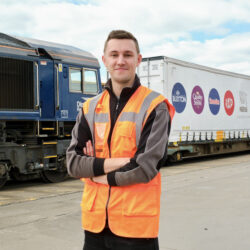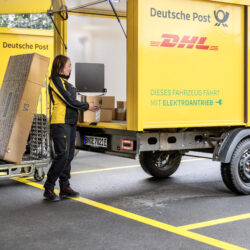Nestlé tests rail container using double-stacked pallets

Greener distribution strategy
The new container type has been developed over the past two years with the aim of contributing to a greener distribution strategy. Figures from the Rail Delivery Group show that each freight train has the potential to take up to 76 trucks off British roads, and that one tonne of products moved by rail produces 76% lower emissions than a diesel-fuelled road journey.
In August this year, in a test, double-stacked Purina pet food products were successfully transported by rail from Hams Hall Distribution Park in North Warwickshire to Tesco’s distribution centre in Thurrock. The outcome of this trial will now allow the food group to grow its rail freight volume.
Halving emissions
“This trial marks an important development in Nestlé’s commitment to halve its emissions by 2030 and reach net zero by 2050,” comments Niall McCarthy (pictured), Rail Development and Delivery Manager at Nestlé UK and Ireland. According to him, the method will also help launch stronger supply chain resilience. “Furthermore, we are proud to deliver to Tesco on this trial, a customer of ours who has been on rail since 2008,” McCarthy states.
Nestlé collaborated with Bootle Containers and Marine Container Test Services to design and build the new container. The trials were conducted in partnership with Network Rail, Forth Ports, WH Malcolm Group and Direct Rail Services. Following the success of the trial, Nestlé is now looking to develop a strategy to expand and refine this method of delivering goods.










